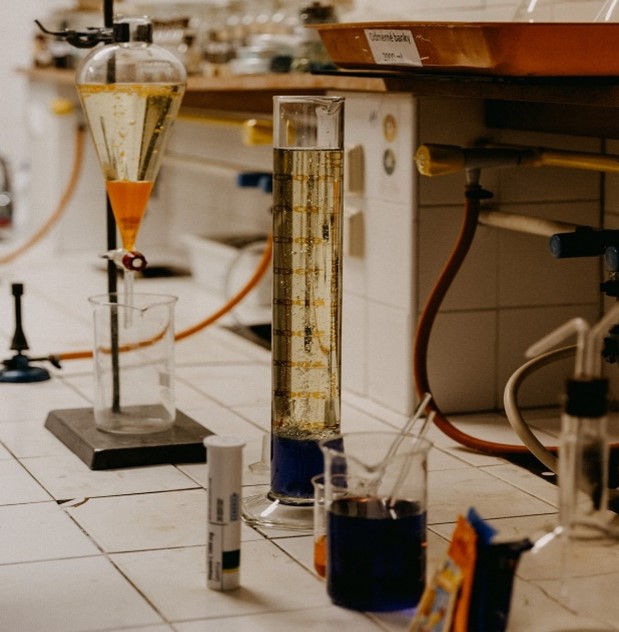What does synthetic mean?
par Essential ParfumsNatural or synthetic?
Like lily of the valley, lilac, violet and carnation are mute flowers. Mute, because extracting a single scent from these flowers is utopian.
To the great despair of perfumers, it is still impossible to obtain natural scents from these flowers. This is also the case for most fruits such as figs, raspberries and pineapples. Only citrus fruits produce a natural smell through the cold expression process. Did you know that it takes 200 kg of fruit to produce 1 kg of essential oil?
Naturally no, but synthetically yes!
In perfumery, we often talk about natural and synthetic. An ingredient is said to be natural when it is directly extracted from nature and has never been modified. This is the case for citrus fruits, woods or even certain flowers such as roses.
|
It is only after the birth of modern perfumery at the end of the 19th century that perfumes emancipate themselves from natural extracts. Perfumers incorporated synthetic ingredients that expanded their creativity and allowed them to explore new olfactory forms. A synthetic ingredient is man-made and is no longer simply extracted from plants or animals. It can be perfectly identical to those found in nature or it can be entirely the creation of the chemist who designs it. They allow us to create smells that we all know by heart:
|
Synthetics allow perfumers to break free from the constraint of using only natural ingredients. Synthetic molecules such as aldehydes, for example, have made it possible to create masterpieces like Chanel N5.
As you will have understood, synthesis allows the perfumer to enlarge his perfume “organ” and to offer contrasts and nuances to the juice.
Synthesis at all costs? No …
Although synthetic molecules offer new colours to the perfumer’s palette, some of them are considered harmful to our health and the environment.
Fortunately, today, synthetic molecules as well as natural ingredients are verified and monitored by the IFRA (International Fragrance Association). This organisation ensures that they are used without danger to the consumer or the environment.
It is well known that some natural ingredients are also dangerous to health or the environment. This was the case with ingredients from the animal kingdom that involved killing the animal (musk), or locking it up (civet).
Choosing synthesis is choosing the easy way out! No …
The easy way ? Not quite … You should know that the development of synthetic molecules takes a considerable amount of time. Each year, the R&D departments of the perfume houses develop between 500 and 3000 molecules, of which only 4 to 5 will integrate the perfumers’ palette, approximately six years later. The development cycle is long, but also fraught with obstacles, such as the many mandatory tests to assess the general dangerousness of the products.
The patenting of the molecule, called “captive”, allows its creator to exploit it exclusively for 20 years! This allows the composition houses to work with unique raw materials, and thus to differentiate themselves from the competition. This is the case of Nirvanolide Musk (exclusive to Givaudan) in The Musc by Calice Becker or Symphonide Musk (exclusive to IFF) in Rose Magnetic by Sophie Labbé
So, how can we discover new ingredients without involving our health, the environment or our wallet?
Don’t worry, we are full of resources! The development of green chemistry is one of them. In recent years, some compounding companies have been turning to biotechnology to find new ways forward. This is the case of Givaudan. with an ingredient called Akigalawood.
Quentin Bisch, perfumer of Bois Impérial, explains: “Akigalawood is a wood obtained by cutting up patchouli. We use a small part of it and we isolate it to obtain Akigalawood. This is called upcycling. It has an incredible smell of wood, vetiver and black pepper. It’s a raw material that has incredible diffusive power.”
Obtaining these new so-called “natural” raw materials therefore requires increasingly sophisticated technologies, which move away from the distillation techniques used since the 19th century. It allows to protect our planet and use way less water than for distilled natural ingredients. The line between natural and synthetic is becoming increasingly blurred.
At Essential Parfums, we are looking for solutions to find the right balance for our health and our planet. This is why we honour upcyling ingredients such as Akigalawood in Bois Impérial by Quentin Bisch or Nirvanolide Musk in The Musc by Calice Becker
We have also chosen to develop perfumes between 86 and 93% natural, ensuring balanced, modern and elegant fragrances.
It’s here if you want to have a look: Essential Parfums


